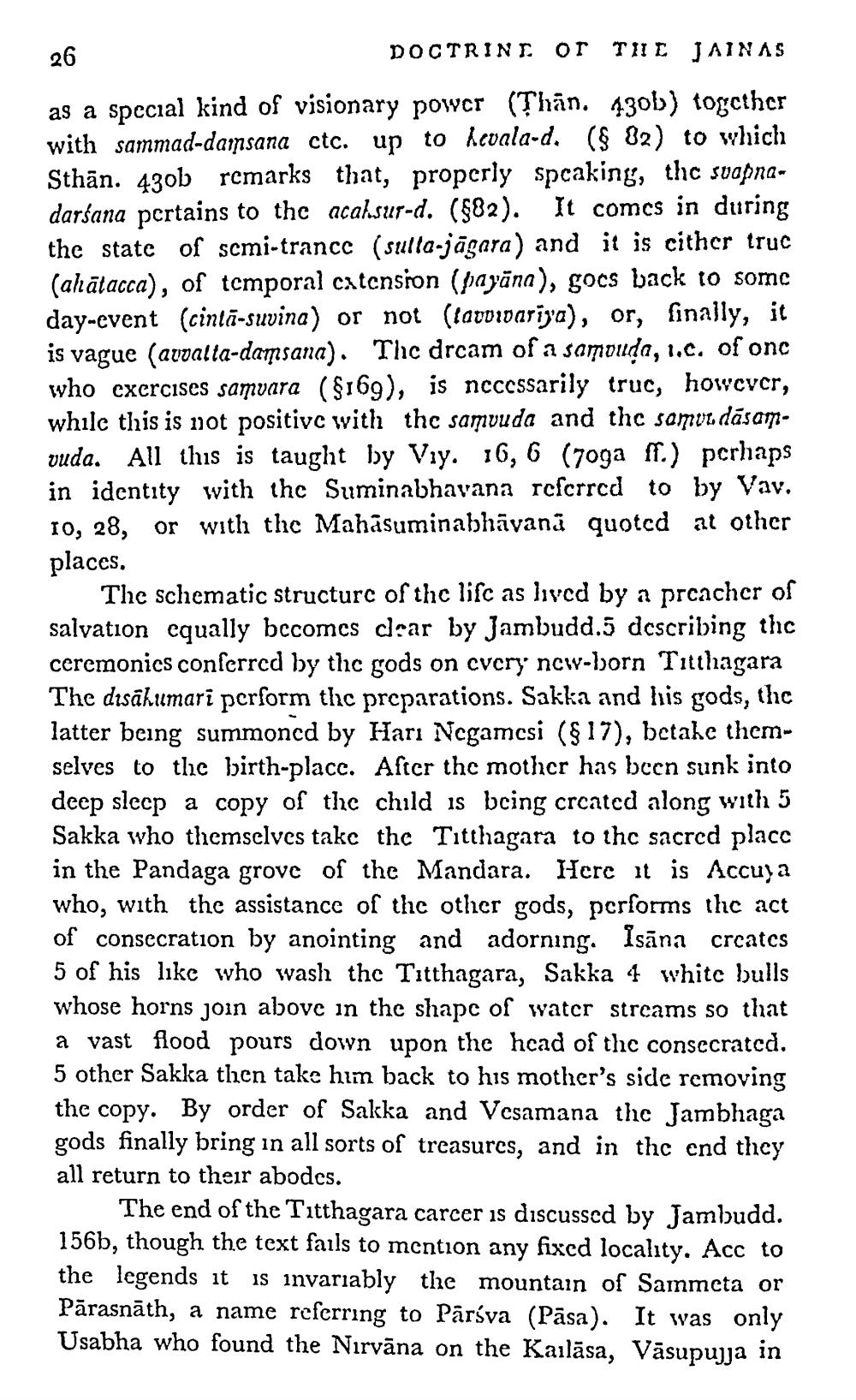________________
26
DOCTRINT. OT TIIL JAINAS as a special kind of visionary power (Thãn. 430b) together with sammad-dainsana ctc. up to hcvala-d. (§ 82) to which Sthān. 430b remarks that, properly spcaking, thc suapnadarśana pertains to the acahsur-d. (982). It comes in during the state of semi-trance (sulla-jāgara) and it is cither truc (ahātacca), of temporal cxtcnsion (bayāna), gocs back to some day-event (cintā-suvina) or not (lavdivarīga), or, finally, it is vague (avvalta-damsana). The drcam of a samouda, 1.c. of onc who exercises samvara ($169), is ncccssarily truc, however, while this is not positive with the samvuda and the samvu dásamvuda. All this is taught by Vay. 16,6 (70ga ff.) perhaps in identity with the Suminabhavana rcfcrred to by Vav. 10, 28, or with the Mahasuminabhāvanü quoted at other places.
The schematic structurc of thc lifc as lived by a prcacher of salvation cqually becomes drar by Jambudd.5 dcscribing the ceremonies conferred by the gods on cvcry new-born Tatthagara The disākumari perform the preparations. Sakka and his gods, the latter being summoned by Hari Ncgamcsi (817), betake themselves to the birth-place. After the mother has been sunk into deep sleep a copy of the child is being crcated along with 5 Sakka who themselves takc thc Titthagara to the sacred place in the Pandaga grove of the Mandara. Here it is Accuya who, with the assistance of the other gods, performs the act of consecration by anointing and adorning. Isāna crcatcs 5 of his like who wash thc Tıtthagara, Sakka 4 white bulls whose horns join above in the shape of water streams so that a vast flood pours down upon the head of the consecratcd. 5 other Sakka then take him back to his mother's side removing the copy. By order of Sakka and Vesamana the Jambhaga gods finally bring in all sorts of treasures, and in the end thcy all return to their abodes.
The end of the Tıtthagara carcer is discussed by Jambudd. 156b, though the text fails to mention any fixed localıty. Acc to the legends it is invariably the mountain of Sammeta or Pārasnāth, a name referring to Pārsva (Pāsa). It was only Usabha who found the Nirvāna on the Kailāsa, Vasupujja in




